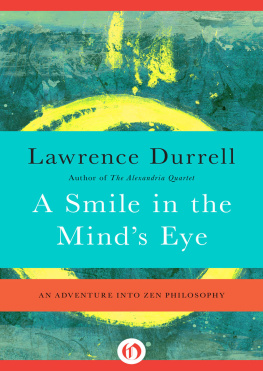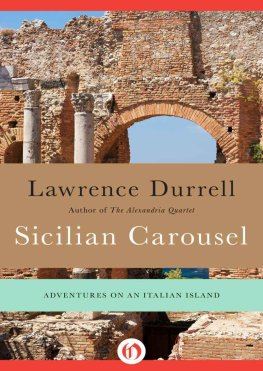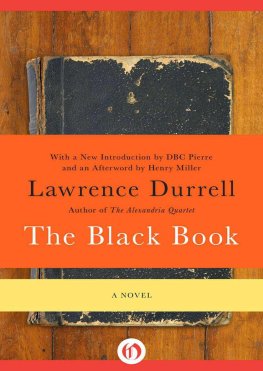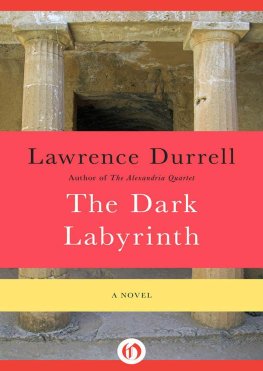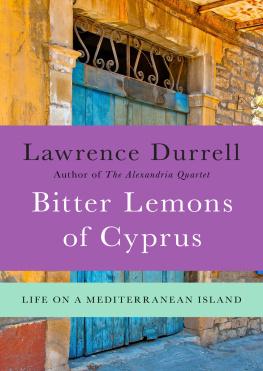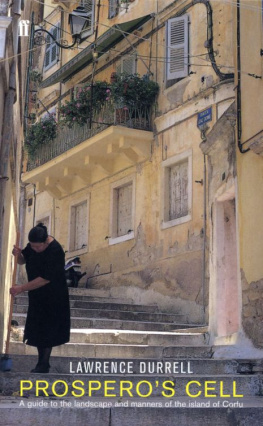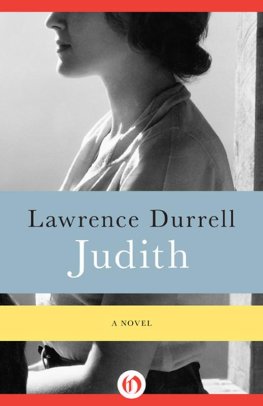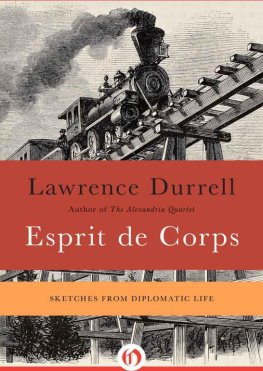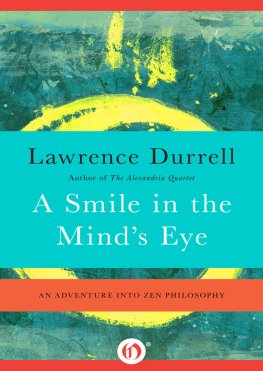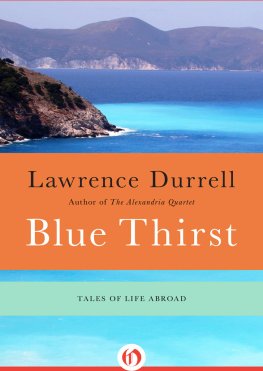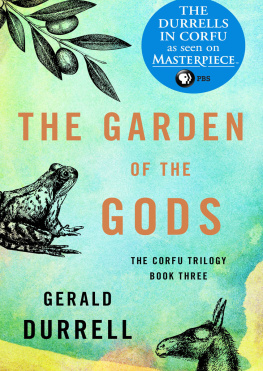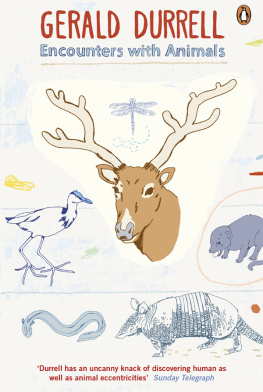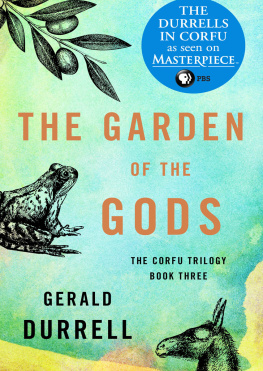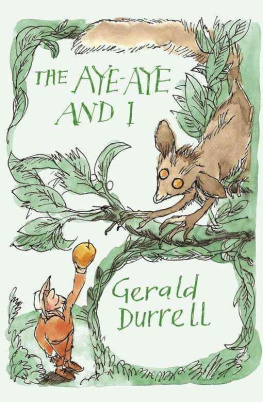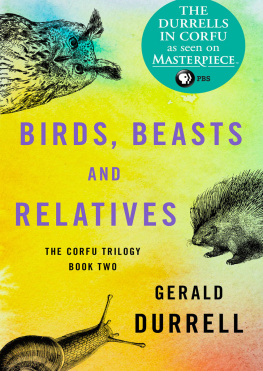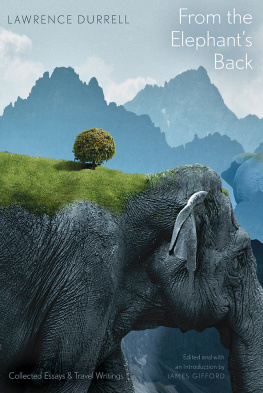A Smile in the Minds Eye
Lawrence Durrell

Dedicated to Chantal De Legume
wherever and whoever she might be?
I have been meaning to write a short account of my meeting with Jolan Chang, a Chinese scholar and as he would have it gerontologist, for some considerable time, though it has not been easy to assemble all the impressions he left behind him after his first short visit to my Provenal home. The word Taoism, for example, has always had a dramatic appeal for me, though apart from the great poem associated with it, its Bible, so to speak, I know but little of the Taoists and their beliefs. But ever since I fell upon that beautiful and concise work, the Tao Te Ching, which contains an enigmatic description of the great motor of the universe and its workings, I felt somehow that that is what I myself believed in or would believe in for choice if one day I found that belief were absolutely necessary to me.
But here I should hesitate for a moment for what do I mean by belief? The word is not to be airily tossed away in this cavalier fashion, without some attempt to come to intellectual grips with it. In my own case I find that with every kind of belief one must exercise a certain caution for it hardens into dogma if it becomes absolute rather than provisional. The word Tao, on the other hand, suggests to me different stances (all truth being relative) a state of total disponibilit, total availability, a total and comprehensive wholehearted awareness of that instant where certainty breaks surface like a hooked fish. Only at this point is the spirit fully tuned in to the great metaphor of the world as TAO. Reality is then prime, independent of the hampering conceptual apparatus of conscious thought. It is the flashpoint where the mind joins itself to the nature of all created things. That poetry is Tao.
When did I first begin to harbour such ideas? It is long ago now it must have been during my twenty-third year, perhaps in the island of Corfu. I cannot recall the circumstances at all clearly. I felt then that in this book I had stumbled upon a Chinese Heraclitus, and that despite the apparent enigmas with which the poem deals, the whole thing made immediate sense to me somewhat transcendental sense, to be sure, but absolute sense. I found it to be a creation in the same key as that of the early Greek philosophers I was then discovering. And so, diving for cherries we had thrown on the sand sea-floor of the little shrine to St Arsenius, I repeated to myself fragments of the two texts as if they had been by the same man. Of course I see now that they were though Heraclituss text is more fragmented than that of the Chinese sage But quite apart from all this I had never in my life met any individual Chinese to talk to and certainly never any scholar who could promise at once to explain and discuss Taoism as a living belief which is what Chang did when he first telephoned me in his excellent and graphic English. There was nothing in it, he added mischievously a Taoist joke! It came about like this. For some weeks in 1976 I had been receiving letters from this unknown Chinese scholar couched in very good English from the city of Stockholm where he appeared to reside. The Taoistgerontologist nexus became slowly clear to me when I remembered that the Taoists were absolutely obsessed by the question of immortality in this life not in an afterworld; and their whole practice was devoted to trying to achieve this desirable state in this life, before striking out for the nirvana of the orthodox Buddhists though of course Taoism is part of Mahayana Buddhism. But my scholar was rather a puzzle at first. He wrote in a small neat hand on several different sorts of headed paper obviously pinched from yacht clubs and hotels. I shared this magpie habit myself and perfectly understood. But he covered the whole surface of the paper with his fine script. He said that he wished to consult me about a work of scholarship he had completed, and which was already being set up for publication and the reason he gave was that he had seen somewhere an interview in which I expressed my sympathy for Taoism.
I was of course flattered and startled, and hastened to disclaim any special knowledge of the subject. No matter, he insisted, and went on to ask if he might visit me in Provence. And no sooner had I agreed than I found him at the other end of a telephone calling me from Stockholm and proposing to reach my little local station of Lunel by dawn on the following day. It was very swift thinking and I was puzzled at the speed of the decision and the expertise over the timetables but I was to find Jolan Chang was a sort of walking abacus, and that his travelling was based most strictly upon the principles of Chuang Tzu (in whose text the traveller always passes invisibly, raising no dust by his silent passage). I did not regard this admonition very literally until I met Chang and realized that if one did not live with total economy in every field one was literally prejudicing ones immortality. I thought he was simply a little miserly at first, until I twigged the immortality principle behind his tremendous frugality! In the Taoist principle there should be nothing left over when you die and go into the round not a crumb, not an undrawn breath. Taoism engenders a clean sweep. Everything must be refunded into the happy silence of the Tao!
Rising early has never been a problem; at five-thirty I lit up the dark garden and warmed the motor of the car. The owls which inhabit the old tower by the pool came whistling and skirmishing down into the lighted foliage, friendly as gun-dogs. Indeed, so often the younger ones overshoot and crash into the coloured panes of the lighted verandah, as the children used to call it. Dawn was not far off, there was a faint suspicion of darkness lifting in the east, beyond the bony garrigues. My little local station is quite close about a dozen kilometres only. I have always revelled in this solitary drive to meet the early train along roads almost deserted save for the occasional lorry. The gloomy little station would be still asleep when I got there the guard and the ticket-collector always appear like jack-in-the-boxes from nowhere, just a few moments before the bell tingles to announce the arrival of the Paris express. I was curious about Chang what sort of man had I come to meet? I pictured someone extremely fragile and venerable and old
The Paris Rapide was punctual as always; she slid into the station pulling the long black new-look coaches. There was a Chinese youth standing at the open door of a carriage waiting for the speed to slacken. As he stepped down the ladder I took him to be eighteen, so supple and light were his movements. He smiled and waved I was the only person on the platform and then leaped to the quai as light as a cat. Yes, it was Chang all right! It was a little while before I found out that this slim Chinese youth was around sixty years of age!
His only baggage appeared to be a couple of Air France zip-bags such as one buys in airports. He wore a light overcoat, a heavy pullover and a ski bonnet. He had sat up all night or rather had slept sitting to save expense and also to do a little work. The text he had brought with him looked a somewhat bulky one. But he was as fresh as a daisy, and seemed to revel in the landscapes we were soon crossing, warmed as they were by the light of the rising sun. It was a choice dawn, the countryside was fresh after a light dew, and the promise of a warm day put us both in a good humour. In the case of Chang it was also his first visit to Provence and his eager darting eye flashed about like a dragon-fly, taking everything in with an effortless zeal which made me feel that he was busy repainting it all in water-colour transforming it in his mind into a Chinese version of Provence.

